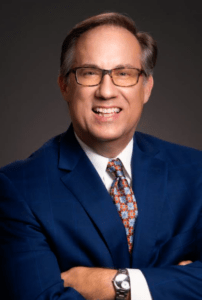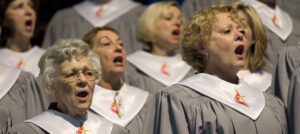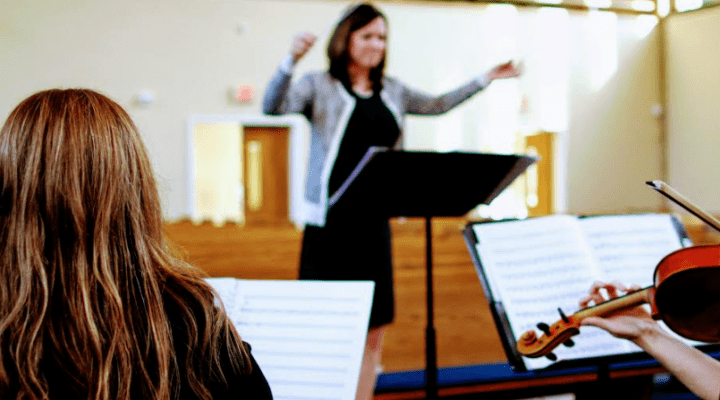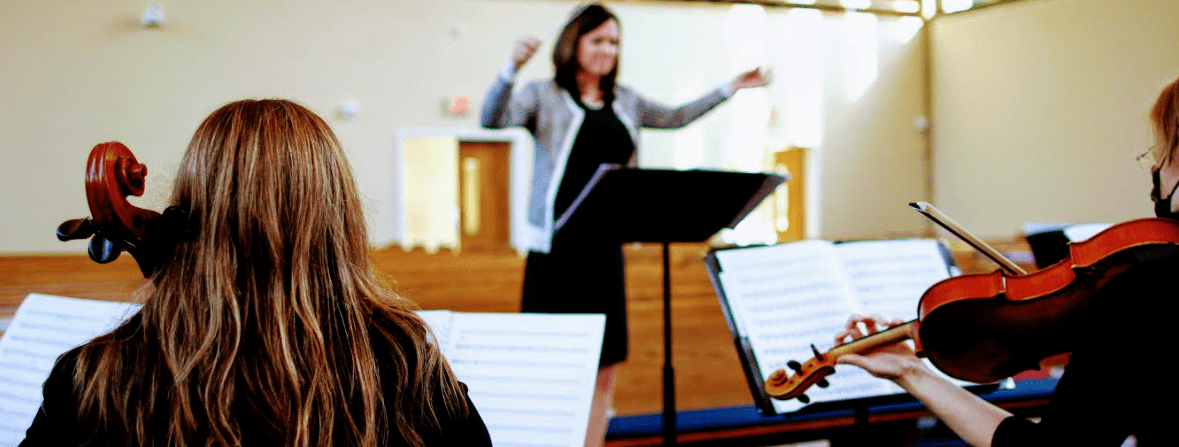A revived and reconstituted Polyphony Music Resources is working to usher in a renaissance for church musicians and their ministries battered and isolated by the COVID-19 pandemic, the organization’s executive director said.
The need has only grown during the return to in-person worship, which also has presented challenges to those called to ministry through music, according to Doug Haney.
“When we finally began to come out of the pandemic, not everybody came back as they were before. Some of our voices are not what they once were. We all have to figure out how to rebuild music and worship ministries together,” said Haney, who serves as associate pastor and minister of music at Wilshire Baptist Church in Dallas and now also as leader of Polyphony.
Polyphony, like the church, has had to reinvent itself along the way, he said.

Doug Haney
An ecumenical and multi-generational community of music ministers that includes a large number of Baptists, Polyphony was launched in 2008 during a conference held at First Baptist Church in Asheville, N.C. For a time, the organization was based at Mercer University in Macon, Ga., where its most recent conference was held in early 2020.
But conferences and other gatherings were held irregularly in the in-between years and participation wavered as members were often pulled in other directions, Haney said.
However, the spread of COVID-19 helped jumpstart the organization and interest in it, he added. “The real spark for Polyphony was the beginning of the pandemic and a sense that church musicians are stronger when we are in community and supporting one another.”
And they needed a lot of support, especially when churches began to cease holding in-person gatherings, he reported. “We were being told singing is dangerous and that choirs and congregational singing was something we couldn’t do.”
Haney and Polyphony board member Kyle Damron, associate pastor for music and worship at Kirkwood Baptist Church in St. Louis, Mo., responded by launching bimonthly Zoom meetings to connect isolated church musicians.
“We figured out quickly there was a need for support and encouragement and idea sharing among the members,” Haney said. “And a lot of us were struggling to adapt to the technology and virtual choirs. Some had livestreaming and could pivot, while others didn’t have that platform. The Zoom gatherings helped with those kinds of things.”

The Chancel Choir from St. Peter’s United Methodist Church in Katy, Texas, sings during morning worship at the 2008 United Methodist General Conference in Fort Worth, Texas. (UMNS photo by Mike DuBose)
The meetings also provided a pastoral function for participants by providing them access to “the similar other,” a term coined by University of Notre Dame wellness scholar Matt Bloom to describe the fellowship that helps ministers flourish, he said.
“This is part of the power of the Zoom calls, which create space where ‘similar others’ can come together to find incredible encouragement from knowing we are not alone in doing this good work.”
That’s why the virtual gatherings will continue regardless of future coronavirus infection levels, he added. “We need community. I know that can be a cliché. But we need a community — a safe space with folks who see the world like we do and who love to do what we do.”
Polyphony, which achieved nonprofit status in November, also is moving ahead with fellowship and research initiatives to strengthen its community of church musicians.
The organization has scheduled its next annual conference, “Rebuilding Together,” Feb. 3-5 at Smoke Rise Baptist Church near Atlanta. “We are all figuring out what life looks like beyond the pandemic,” Haney said. “And we believe the art and craft of church music is best nurtured in community.”
“We believe the art and craft of church music is best nurtured in community.”
The rebuilding theme reflects both Polyphony’s journey and that of its members, he explained. “Has all our church attendance returned to where it was? Have all our choirs come back? No. So we all have a lot of work to do and we’re still not out of it yet — and we’re still dealing with the Omicron variant.”
Presenters at that conference will include Emily Floyd, director of music at Shallowford Presbyterian Church and conductor/music director of the Choral Guild of Atlanta; Timothy Peoples, senior minister at Emerywood Baptist Church in High Point, N.C.; Tim Sharp, who recently retired as executive director of the American Choral Directors Association and who continues to serve as minister of music at Immanuel Baptist Church in Nashville, Tenn.; Karen Sorrells, a choral conductor, clinician and writer of children’s choir curriculum who previously served 20 years as associate minister of music at First Baptist Church of Asheville, N.C.; and Clark Sorrells, who this month is retiring as minister of music at First Baptist Church of Asheville.
Polyphony plans to commission a study in 2022 to interview 100 music ministers to gauge what they need to thrive in their ministries. The organization will use that information to shape its future programming, Haney said.
“Polyphony is not about hierarchy or top-down or even mentor-mentee. It’s about a reciprocity of exchanging ideas, about talking about what works and what doesn’t, and about learning from one another.”
Related articles:
Without choirs or bands, churches seek to provide congregants with music virtually
Why church musicians become scapegoats in anxious church systems and how to make personnel changes gracefully | Opinion by Doug Haney
Q&A with Michael McMahon of the Hymn Society of North America


